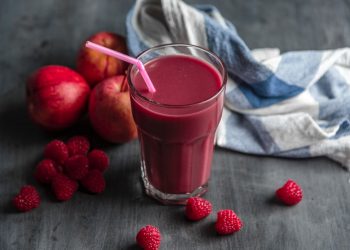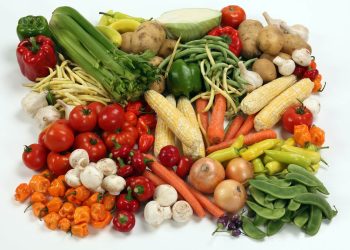Maintaining a healthy lifestyle is crucial in today’s world. A key component of a healthy lifestyle is a balanced diet, which includes an adequate amount of fruits and vegetables. The significance of incorporating fruits and vegetables into our daily diet cannot be overstated. These natural wonders are packed with essential nutrients, vitamins, minerals, and antioxidants that promote overall well-being and help prevent diseases. Let’s explore the importance of fruits and vegetables in our diet.
The Role of Fruits in a Healthy Diet
Fruits are nature’s sweet treats, loaded with an abundance of goodness. They are a rich source of dietary fiber, vitamins, minerals, and natural sugars. Incorporating a variety of fruits into your diet provides numerous health benefits. Fruits are known to boost the immune system, promote healthy digestion, and enhance brain function. They are also low in calories, making them an excellent choice for weight management.
The Importance of Vegetables in a Balanced Diet
Vegetables, on the other hand, offer a wide range of nutrients essential for maintaining optimal health. They are packed with vitamins, minerals, fiber, and phytochemicals that have been linked to reducing the risk of chronic diseases such as heart disease, diabetes, and certain types of cancer. Including a colorful array of vegetables in your meals ensures a diverse nutrient intake, keeping your body strong and healthy.
The Benefits of a Fruit and Vegetable-Rich Diet
1. Enhanced nutrient intake
One of the primary benefits of consuming a diet rich in fruits and vegetables is the increased intake of essential nutrients. These nutrient powerhouses provide a wide array of vitamins, including vitamin C, vitamin A, and vitamin K. They are also abundant in minerals such as potassium, magnesium, and folate. By including a variety of fruits and vegetables in your daily meals, you ensure that your body receives the vital nutrients it needs for optimal functioning.
2. They improve digestion
Fruits and vegetables are excellent sources of dietary fiber, which plays a crucial role in maintaining a healthy digestive system. Fiber adds bulk to the diet, aiding in regular bowel movements and preventing constipation. Moreover, it promotes the growth of beneficial gut bacteria, supporting a healthy gut microbiome. Including fiber-rich fruits and vegetables like apples, bananas, broccoli, and carrots can contribute to a well-functioning digestive system.
3. They prevent diseases
A diet abundant in fruits and vegetables has been associated with a lower risk of chronic diseases. The antioxidants present in these natural wonders help protect the body against oxidative stress, which can lead to cell damage and contribute to the development of diseases like cancer and cardiovascular conditions. The wide range of phytochemicals found in fruits and vegetables also plays a role in disease prevention by reducing inflammation and strengthening the immune system.
4. Fruits and veggies are good for weight management
Obesity has become a global health concern, and incorporating fruits and vegetables into your diet can aid in weight management. Fruits and vegetables are low in calories and high in fiber, making them ideal for promoting satiety and reducing overall calorie intake. Their natural sweetness also satisfies sugar cravings, making them a healthier alternative to processed snacks and desserts. By replacing calorie-dense foods with fruits and vegetables, you can maintain a healthy weight and support your overall well-being.
FAQs about the Importance of Fruits and Vegetables in Diet
1. Why are fruits and vegetables essential for our health?
Fruits and vegetables are essential for our health due to their high nutritional value. They provide essential vitamins, minerals, fiber, and antioxidants that promote overall well-being, support a healthy immune system, and reduce the risk of chronic diseases.
2. How many servings of fruits and vegetables should I consume daily?
It is recommended to consume a minimum of 5 servings of fruits and vegetables per day. This ensures an adequate intake of essential nutrients and supports optimal health.
3. Can fruits and vegetables help with weight loss?
Yes, fruits and vegetables can aid in weight loss. They are low in calories, high in fiber, and provide a feeling of fullness, helping to control appetite and reduce calorie intake.
4. Are there any specific fruits and vegetables that offer unique health benefits?
Yes, different fruits and vegetables offer unique health benefits. For example, leafy greens like spinach and kale are rich in iron and other essential minerals. Berries are packed with antioxidants, while citrus fruits provide an excellent source of vitamin C.
5. Can I meet my nutritional needs by consuming only fruits and vegetables?
While fruits and vegetables are crucial for a balanced diet, it is important to include other food groups as well. Consuming a variety of foods ensures a diverse nutrient intake and meets all your nutritional needs.
6. How can I incorporate more fruits and vegetables into my diet?
There are several ways to incorporate more fruits and vegetables into your diet. You can add them to smoothies, salads, stir-fries, or enjoy them as snacks. Experiment with different recipes and explore the wide variety of fruits and vegetables available to discover new favorites.
A few other reasons are that fruits and vegetables are convenient and easy to consume. They’re also the greatest reasons to make your favorite smoothies every day! And due to the varieties, you can even play around with your smoothie flavors.
The importance of fruits and vegetables in our diet cannot be overstated. These nutritional powerhouses provide a wide range of health benefits, including enhanced nutrient intake, improved digestion, disease prevention, and weight management. By making fruits and vegetables a significant part of your daily meals, you take a vital step towards a healthier and happier life. So, let’s embrace the goodness of fruits and vegetables and reap the rewards they offer.











